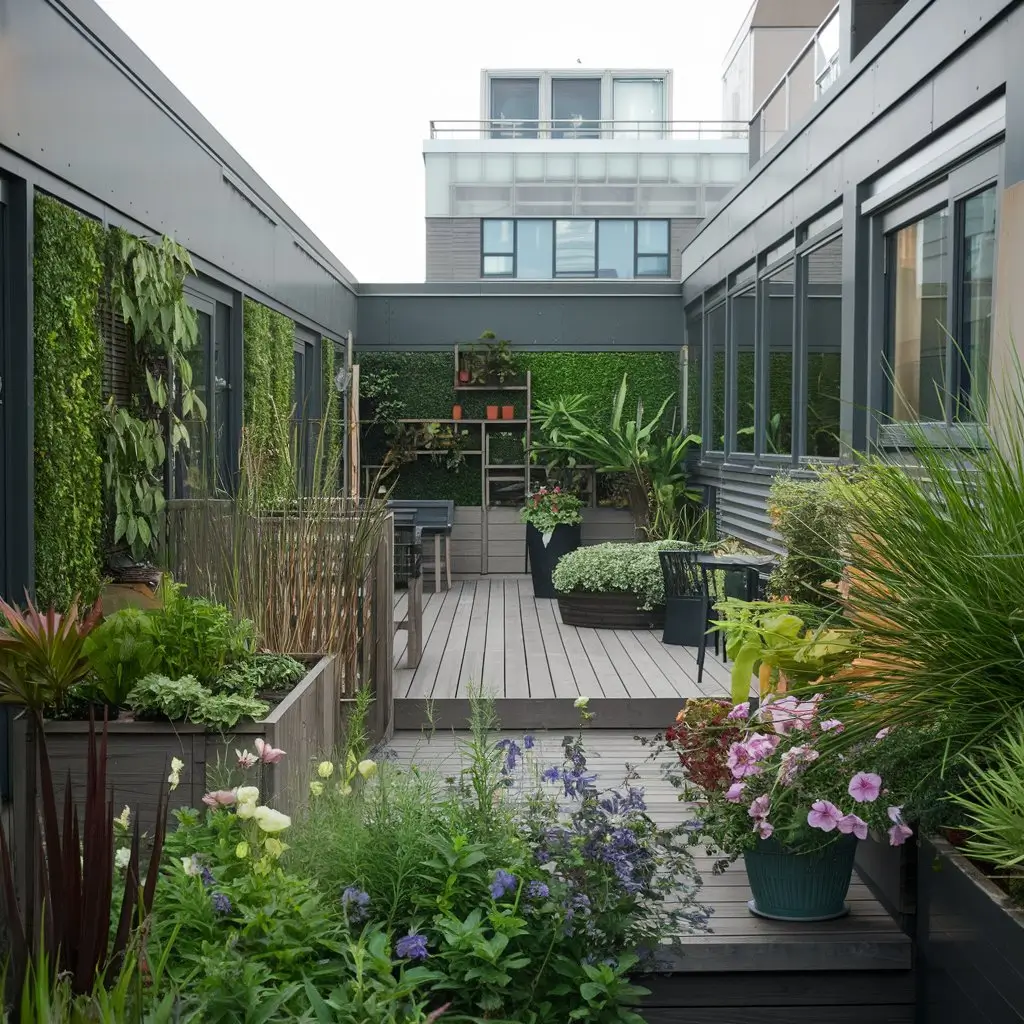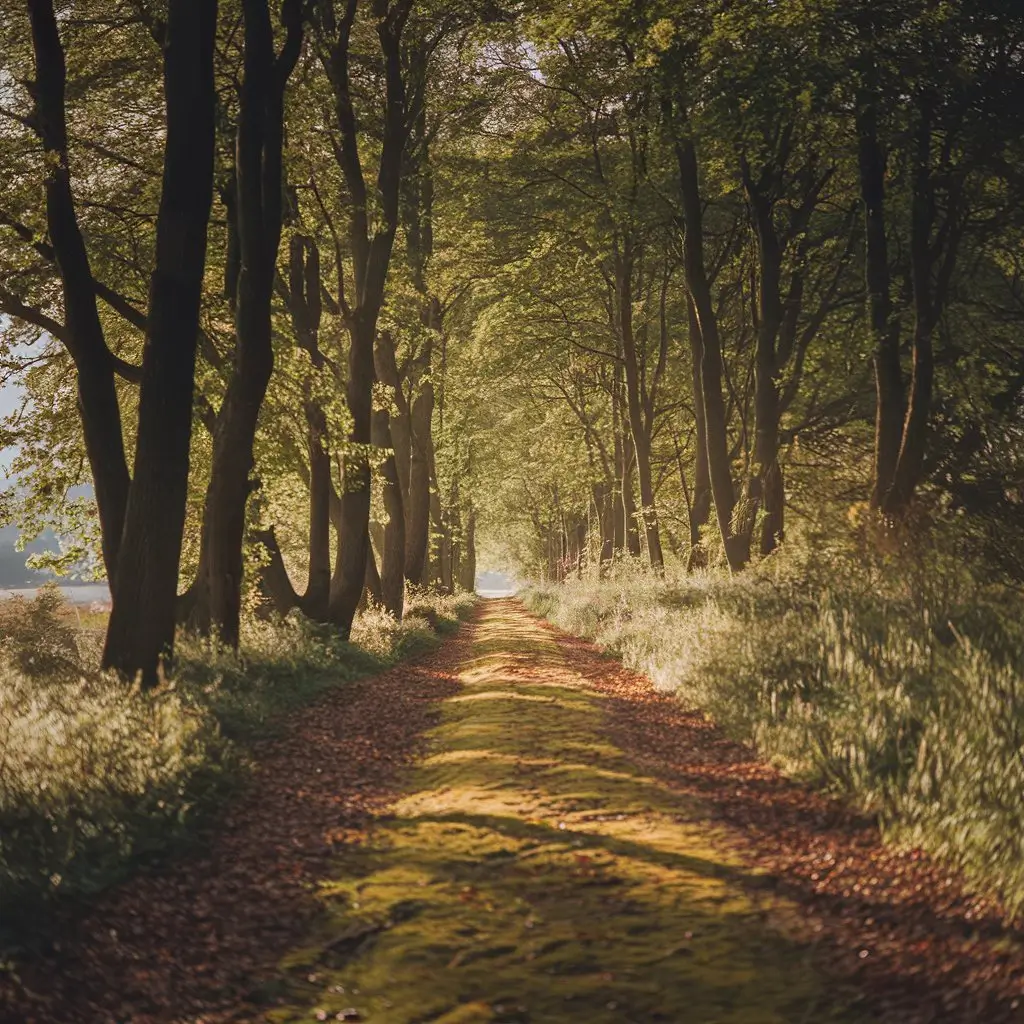In the concrete jungle where we hustle and bustle, it’s easy to lose sight of the natural world that once inspired humanity. The vibrant energy of city life can often leave us feeling drained, isolated, and overwhelmed. Yet, what if the secret to revitalizing our spirits lies just outside our doors? Reconnecting with nature isn’t merely a luxury; it’s a vital ingredient for personal growth and a happier life. Studies reveal that spending time in nature can elevate our mood, spark creativity, and enhance our overall sense of fulfillment. In this article, we’ll uncover simple yet powerful ways to bring the beauty of nature back into your urban routine, transforming even the busiest cityscape into a sanctuary for your soul.
Benefits of Reconnecting with Nature
Reconnecting with the outdoors offers a myriad of benefits that extend beyond mere enjoyment of the fresh air. These advantages touch on mental, emotional, and physical well-being, contributing to a more balanced and fulfilling life. Here are some key benefits of fostering a connection with the environment:
Mental Health Improvements
One of the most significant benefits of spending time outside is its positive impact on mental health. Research shows that exposure to natural settings can lead to reduced levels of stress, anxiety, and depression. The great outdoors has a calming effect on the mind, helping to lower cortisol levels, the hormone associated with stress.
Being outside encourages mindfulness, allowing you to focus on the present moment and escape the incessant noise of daily life. Activities like walking in a park or sitting by a lake can provide a much-needed mental reset, enhancing overall clarity and emotional resilience. Many individuals report feeling more relaxed and rejuvenated after such experiences, highlighting the therapeutic power of the environment.
Physical Health Benefits
Engaging with the outdoors often translates into increased physical activity, which is essential for maintaining good health. Activities such as hiking, biking, or even gardening promote cardiovascular fitness, strengthen muscles, and improve flexibility. Regular exposure to green spaces can also encourage healthier lifestyle choices, as individuals who spend more time outside tend to engage in more physical activities.
Additionally, being in natural settings has been linked to improved immune function. Studies suggest that exposure to phytoncides, natural compounds released by plants, can enhance immune response, helping to fend off illnesses. Furthermore, spending time outdoors often means more sunlight exposure, which is essential for vitamin D synthesis. Whole body wellness and proper bone structure along with immune function depend heavily on Vitamin D consumption.
Increased Creativity and Focus
The outside serves as an effective catalyst for imagination and cognitive work. Studies indicate that spending time in green spaces can enhance problem-solving skills, boost creativity, and improve concentration. The environment stimulates the mind in unique ways, allowing for more innovative thinking and increased productivity.
Many people report experiencing “a-ha” moments while walking outside or engaging in outdoor activities. This phenomenon occurs because these settings allow the mind to wander freely, making connections that may not surface in a structured environment. People find mental fatigue reduction more achievable when they focus and think critically after perceiving these serene locations.
Enhanced Emotional Well-being
Reconnecting with the outdoors can lead to improved emotional well-being. The beauty and serenity of natural environments foster feelings of happiness, contentment, and inspiration. Whether it’s witnessing a breathtaking sunset, enjoying a picnic in the park, or listening to the soothing sounds of a flowing river, these experiences can evoke positive emotions and uplift your spirit.
Spending time outdoors enables people to develop an appreciation and gratitude for their environment. These feelings can enhance life satisfaction and contribute to a more positive outlook. Engaging with the environment encourages individuals to cultivate a sense of wonder and curiosity, reminding us of the beauty and complexity of our surroundings.
Social Connections
The outdoors can serve as a powerful backdrop for social interactions and community building. Whether it’s hiking, gardening, or simply enjoying a day in the park, these moments create lasting memories and strengthen relationships.
Community events centered around outdoor activities, such as clean-up days, nature walks, or gardening workshops, offer opportunities to meet new people and engage with like-minded individuals. Building a social network that values these experiences can enhance your sense of belonging and connection, further enriching your life.
Greater Environmental Awareness
Reconnecting with the outdoors often leads to a heightened awareness of environmental issues and a desire to protect the planet. As individuals spend more time outside, they become more attuned to the beauty and fragility of ecosystems .Environmental awareness motivates people to adopt sustainable practices for environmental stewardship.

Simple Ways to Reconnect with Nature in the City
Urban Green Spaces
Many towns conceal their conservatory features and parks and backyard gardens as secret treasures throughout their urban areas. These urban green spaces serve as vital oases, offering a breath of fresh air amid the concrete. Take some time to explore local parks, botanical gardens, or community gardens. Bring a book to read under a tree, have a leisurely stroll, or simply sit and watch the world go by. Look for events like outdoor yoga classes or farmers’ markets that often take place in these spaces. Even a short lunch break in a nearby park can recharge your spirit and provide a much-needed escape.
Nature Walks and Hikes
Walking represents the easiest method to spend time in nature. Numerous urban areas administer walkers routes beside nature areas that showcase beautiful landscapes together with diverse environmental systems. Establish a weekly tradition of mapping out different walking paths from rivers to nature reserves and through colorful historic residential areas with abundant vegetation. During this nature immersion time disconnect from technology so you can better experience your surroundings while you observe the colors and sounds of nature along with its scents. Walking becomes a worthwhile way to make your mind clearer and improve your creativity rates.
Outdoor Activities
Engaging in outdoor activities is a fantastic way to soak up nature while also benefiting your physical health. Whether it’s practicing yoga in the park, going for a bike ride, or participating in a community sports league, being active outdoors can invigorate your body and mind. Try organizing a weekend picnic with friends where you can enjoy good food amidst nature. If you’re feeling adventurous, consider joining a local hiking club or taking part in outdoor workshops, such as photography or painting classes, that emphasize nature.
Gardening
Bringing nature into your home can be incredibly rewarding. If you have a balcony or even a sunny windowsill, consider starting a small garden. You can grow herbs, vegetables, or flowers, whatever fits your space and lifestyle. Gardening fosters a sense of accomplishment and provides a direct connection to the earth. If space is limited, look into community gardens in your area where you can cultivate plants alongside others. Many cities also offer urban farming initiatives, allowing residents to participate in growing food sustainably.
Mindful Observation
Mindfulness is about being fully present in the moment, and nature offers the perfect backdrop for this practice. Dedicate a few minutes each day to simply observe your surroundings. Go to a quiet location while closing your eyes and breathing deeply a few times. Listen to the sounds of leaves rustling, birds chirping, or the wind blowing. Open your eyes and take in the colors and textures around you. This practice not only enhances your appreciation for nature but also helps reduce stress and ground you in the present moment.
Nature-Based Community Events
Cities often host a variety of nature-based community events that can help you connect with others while enjoying the outdoors. Look for local nature walks, volunteer opportunities for environmental clean-ups, or workshops on gardening and sustainability. These events not only help you engage with nature but also allow you to meet like-minded individuals who share your passion for the environment. Participating in community events fosters a sense of belonging and purpose, making your urban experience richer and more fulfilling.
Seasonal Activities
Embrace the changing seasons by participating in seasonal activities that celebrate nature. In spring, join a cherry blossom festival or plant flowers in your neighborhood. Summer invites outdoor movie nights in parks or beach outings. In the fall, go apple picking or take scenic drives to admire autumn foliage. Winter can be enjoyed with outdoor ice skating or visiting holiday markets. Each season offers unique opportunities to reconnect with nature and appreciate its beauty, no matter where you live.
Incorporating Nature into Daily Life
Integrating nature into your daily routine doesn’t have to be a monumental task; even small changes can make a significant impact on your connection with the natural world. Here are some simple strategies to weave nature into your everyday life, enhancing your well-being and enriching your urban experience.
Morning Routines
Start your day with nature by incorporating outdoor activities into your morning routine. Instead of jumping straight into your daily obligations, take a few moments to step outside. Consider going for a brisk walk or a jog in a nearby park, enjoying the fresh air and morning light. The natural energy of the morning can invigorate your mind and body, setting a positive tone for the day ahead.
If you prefer a more tranquil start, practice morning meditation or yoga outdoors. Find a quiet spot in your garden or on your balcony, where you can stretch and breathe deeply while surrounded by plants or the sounds of chirping birds. This mindful connection with nature can help cultivate a sense of peace and clarity that carries you through the day.
Breaks During the Day
Incorporate nature into your workday by taking intentional breaks. Step outside during your lunch break to enjoy a change of scenery. Even a few minutes spent in a nearby park can refresh your mind and boost productivity. Use this time to walk, sit on a bench, or simply observe the natural elements around you.
If you can’t leave the office, bring nature indoors by placing plants on your desk or near your workspace. Studies show that having greenery nearby can reduce stress and increase focus. Consider using a small desktop plant or even a vase of fresh flowers to liven up your environment and create a calming atmosphere.
Evening Relaxation
End your day with a nature-inspired routine to help you unwind and reflect. Spend some time outdoors in the evening, whether it’s enjoying a sunset from your balcony or taking a leisurely stroll through your neighborhood. The calming effect of twilight can help you decompress after a busy day.
Incorporate nature into your evening relaxation rituals. Consider reading a book outside, listening to soothing nature sounds, or practicing stargazing. If you have a garden or outdoor space, create a cozy nook with blankets and cushions where you can relax and connect with the natural world. This time can serve as a perfect opportunity for reflection, gratitude, and mindfulness.

Weekend Adventures
Make the most of your weekends by planning outdoor adventures. Explore nearby hiking trails, visit botanical gardens, or take day trips to nature reserves. Use these outings to immerse yourself in nature and recharge your spirit. Invite friends or family to join you for a picnic or a nature-themed activity, turning it into a social gathering that celebrates the outdoors.
Consider participating in local environmental initiatives or community events that promote nature conservation. These activities not only allow you to connect with nature but also foster a sense of community and purpose.
Seasonal Changes
Embrace the changing seasons by adapting your routine to reflect the natural shifts around you. In spring, start a garden or participate in local planting events. Summer might inspire you to take up outdoor sports or enjoy festivals in parks. In the fall, relish in activities like apple picking or visiting pumpkin patches. Winter can be an opportunity for ice skating or enjoying holiday lights in nature parks.
By aligning your activities with the seasons, you cultivate a deeper appreciation for the cyclical nature of life and the beauty that each season brings. This connection can enhance your overall well-being and remind you to cherish the world around you.
Mindful Practices
Incorporate mindfulness practices focused on nature into your daily life. Set aside time each week to engage in mindful observation, whether that’s sitting in a park, watching clouds, or listening to the rustle of leaves. Use this time to reflect on your thoughts and feelings, grounding yourself in the present moment.
Consider journaling about your experiences in nature. Documenting your thoughts, feelings, and observations can deepen your connection to the natural world and help you recognize the ways it positively impacts your life.
Overcoming Barriers to Nature Connection
While the benefits of connecting with nature are clear, various barriers can make it challenging for urban dwellers to embrace the outdoors fully. Whether it’s time constraints, lack of access, or mindset hurdles, recognizing these obstacles is the first step toward overcoming them. Here are some strategies to help you navigate these challenges and foster a deeper connection with nature in your daily life.
Time Constraints
In our busy lives, finding time for nature can feel like an impossible task. However, integrating nature doesn’t need to require hours of your day. Start by carving out small pockets of time throughout your week. For instance, consider taking a ten-minute walk during your lunch break or spending a few moments outside each morning to breathe in the fresh air.
To make the most of your time, combine tasks. If you have errands to run, opt for walking or biking instead of driving whenever possible. This not only allows you to enjoy nature but also helps you incorporate physical activity into your routine. Furthermore, consider setting a weekly nature date on your calendar, whether it’s a hike, a visit to a park, or simply time spent in your garden. Treating these moments as appointments can help you prioritize your connection with nature.
Lack of Access
Many urban areas may lack direct access to expansive green spaces, which can deter people from engaging with nature. However, there are often hidden gems even in the most crowded cities. Start by researching local parks, community gardens, or botanical gardens that may not be immediately visible.
If green spaces are limited in your area, think creatively. Look for rooftops, balconies, or even window sills where you can cultivate a small garden or keep potted plants. Additionally, consider joining local community garden initiatives or urban farming projects, which often provide access to shared green spaces. Many cities have organizations focused on environmental stewardship that can connect you with nature-focused activities and resources.
Mindset Shifts
Sometimes, the biggest barrier to connecting with nature is our own mindset. Urban living can foster a perception that nature is distant or irrelevant to our daily lives. To overcome this, start by recognizing the importance of nature in your well-being. Remind yourself that nature is not just a luxury; it’s a necessity for mental and emotional health.
Practice gratitude for the small aspects of nature that surround you. Whether it’s the trees lining your street, the flowers in a community garden, or the birds visiting your balcony, take a moment to appreciate these elements. Incorporating mindfulness practices can help shift your perspective, allowing you to find joy and beauty in the natural world around you, even in an urban setting.
Embracing Technology
While technology can sometimes feel like a barrier to nature connection, it can also serve as a useful tool. Use apps and websites to discover local parks, trails, and nature-related events in your area. Many cities have mobile apps that provide information on green spaces and outdoor activities, helping you plan your nature excursions more efficiently.
Using social media might supply you with motivating content. Follow nature enthusiasts, local conservation groups, or outdoor adventure accounts that encourage exploration and appreciation of the natural world. Creating such relationships will develop a network that encourages commitment toward nature cultivation in your daily life.
Building a Support System
Finding a community of like-minded individuals can significantly enhance your connection to nature. Consider joining local hiking clubs, gardening groups, or environmental organizations. These communities not only provide opportunities for outdoor activities but also foster relationships with people who share your passion for nature.
Invite friends or family to join you in nature-related activities. Whether it’s a weekend hike, a picnic in the park, or a gardening project, sharing these experiences can make them more enjoyable and encourage others to prioritize nature in their lives as well.
Setting Realistic Goals
The ticket to maintain consistent nature connection requires setting realistic objectives which you can achieve. Set initial goals by devoting your time to walking in parks once weekly or spending short periods observing the environment daily. Your comfort with nature will increase while you extend your time spent in natural environments.
Consider keeping a nature journal to track your experiences and reflect on your progress. Writing down your thoughts and feelings about your nature interactions can help solidify your commitment and deepen your appreciation for the natural world.
Conclusion
The process of reconnecting with nature supports personal growth along with wellness specifically in cities. Your personal health improves when you spend time in urban nature and participate in active outdoor activities and daily nature immersion. Make small progress at first and recognize the positive effects of embracing natural beauty as they appear.


1 thought on “Reconnecting with Nature: Unlocking Health and Happiness”